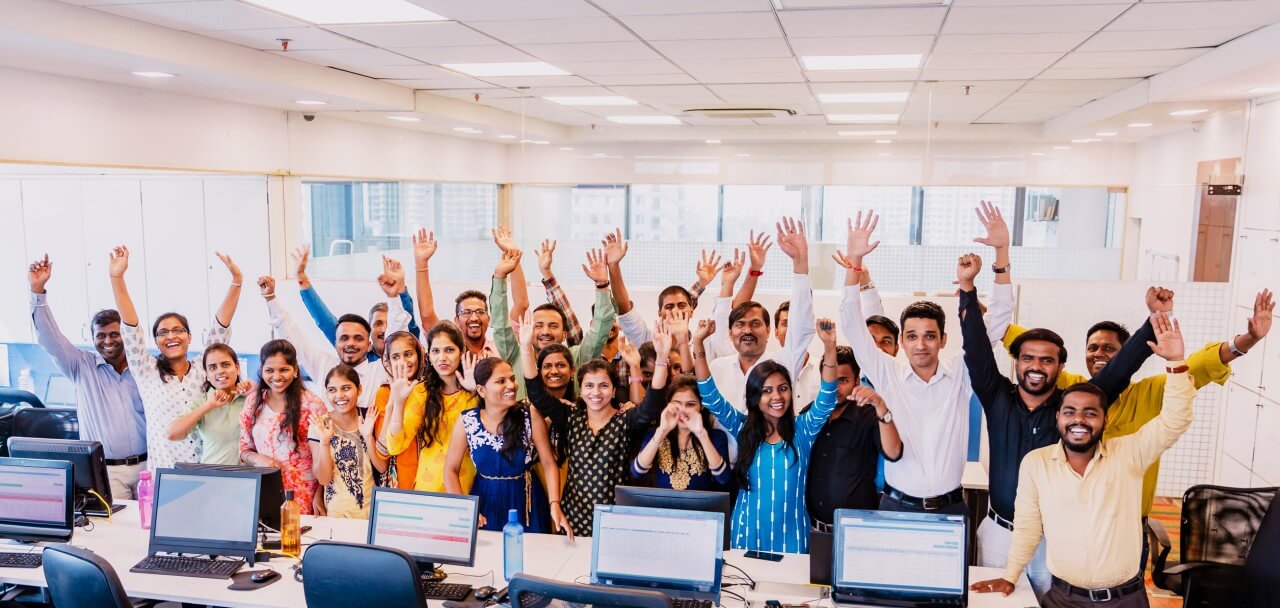After a few days on the ground in India getting to know hashtag#Noventiq (formerly Softline Group) India´s team, offices and customers, I’m once again blown away by the level of talent and potential which is abundant here. India has long been known as one of the world’s go-to destinations for global players to acquire technological expertise and talent, but as the domestic sector matures, it’s clear to see that it’s becoming so much more.
India’s digital economy is set to reach an astonishing $1 trillion by 2025, and the country’s pool of IT professionals has grown over the last decade to the extent where it now accounts for 75 percent of global digital talent. What’s more, the rising demand for 5G communication technologies, artificial intelligence solutions, Big Data analytics, cloud computing and the Internet of Things (IoT) is set to fuel even more growth for India’s IT industry.
All this points towards an exciting phase in the development of the country’s IT sector. The tech currently emerging holds a plethora of promising potential applications in the business world and India’s companies, in all sectors, are primed to take advantage. According to a report from industry body Nasscom, and global consulting firm McKinsey, India’s technology services industry is expected to hit $300-350 bn in annual revenue by 2025. With these kinds of numbers, if the country can successfully tap the emerging business potential of cloud, artificial intelligence, cybersecurity and other technologies, it’s going to put them streets ahead of other comparable global markets.
So, how exactly will Indian companies be tapping into these exciting prospects? We see three key areas which are going to change the way India does business.
The digitisation of life and work
We expect to see a significant uptick in technologies such as mobile internet and cloud integration as companies find their feet in the post-pandemic ‘new normal’ of hybrid work patterns. We also envisage that companies will make inroads with automating knowledge work, digital payments and digital identification to secure processes for remote and hybrid employees and work to deliver a more seamless experience.
Smart physical systems
Many businesses are starting to take advantage of the fast-maturing world of the Internet of Things to reimagine their inventory and transit processes. While this is particularly evident when it comes to warehousing, freight, and dispatching operations, we expect this technology to make some serious moves in other sectors as companies identify how to apply IoT in their operations. It’s also clear that Geographic Information Systems (GIS) will play a key role in helping companies to analyse data from the Internet of Things to enrich their processes and optimise costs.
The growth of artificial intelligence tools
A few days ago, I read an article on how a local start-up is building artificial intelligence tools to restore very old paintings into masterpieces. This is a simple but exciting example of how AI use is not only growing but being introduced to different industries and businesses in innovative ways.
I do sometimes still sense a fear of using Artificial Intelligence (hashtag#AI)and robotic automation from businesses I speak to in India and, indeed, in other countries as well. Employees may also be concerned about the risk of their jobs no longer being required due to the implementation of machines to carry out certain tasks.
However, there is plenty of evidence which should put their minds at ease. According to recent studies from prestigious organisations like Stanford University and the World Economic Forum, automation, AI and other forms of digital transformation will ultimately create more jobs than they will replace. Also, robots are a long way off from being able to replicate the empathy and emotional intelligence of humans when it comes to activities such as networking, employee engagement or motivational speaking. While efficiency is essential for any business, it is the human touch in concert with the power of the machine which personifies those organisations which really win out.
Steve Jobs once pointed out that on a list of the most efficient animals in movement humans came way down in the bottom third, but when given a bicycle the human completely blows away the competition and becomes the most efficient by an enormous margin. He called his Macintosh computer the ‘bicycle for the mind’. This perfectly illustrates why it is so important for businesses and their employees to embrace new technologies. Organisations that do so wholeheartedly can expect to grow via efficiencies, but most importantly to provide an even better service to their customers.
At @noventiq, our focus is on ensuring that Indian businesses are in a position to take advantage of India’s maturing IT sector. To continue empowering homegrown companies to harness the power of India’s impressive IT capabilities at the same rate as global players we are pursuing:
● Increased recruitment of top-flight specialists in key technologies
● Further development of our existing resources to make sure that we’re always ahead of the curve when it comes to delivering next-generation tech for key domestic Indian industries.
If you’re wondering how you can take advantage of this opportunity to put your business ahead of the competition, reaching out is the first step. Our experts are always on hand to help you build a roadmap to stake your business’ place in India’s burgeoning digital economy.





